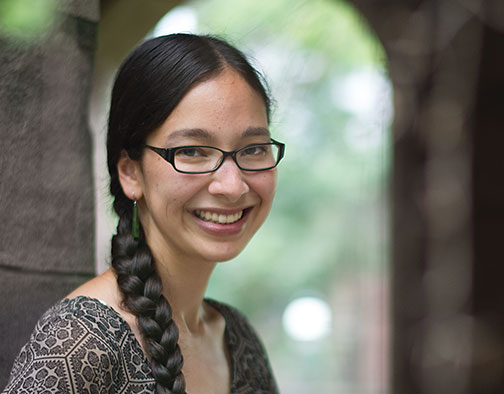Last summer, when Princeton’s oldest living Asian American graduate, Yeiichi “Kelly” Kuwayama ’40, passed away, his widow suggested that memorial donations go to the University’s Asian American studies endowment fund.
To Evan Kratzer ’16, co-president of Princeton’s Asian American Students Association (AASA), the suggestion movingly demonstrated Princeton’s progress toward a long-fought goal: the establishment of an Asian American studies program.
After a decades-long struggle that included a 36-hour student sit-in at Nassau Hall in 1995, advocates of Asian American studies say they are cautiously optimistic. A junior professor of Asian American history has joined the faculty this fall, and English and African American studies professor Anne Cheng ’85, whose introductory Asian American studies course drew 99 undergraduates last spring, is chairing a multi-department search for a senior scholar in Asian American studies.
“The University is very serious about its commitment to expanding the presence of Asian American studies on campus,” said Dean of the College Valerie Smith.
Next March, Princeton will gather academics from across the country to discuss how best to configure the field’s institutional presence, said history professor Hendrik Hartog, director of the American studies program. With strong backing from the Asian American Alumni Association of Princeton (A4P), the University has raised more than $265,000 to endow teaching, research, and programming in Asian American studies.
In a symbolic show of commitment, President Eisgruber ’83 contributed to the fund. In his first 15 months in office, Eisgruber has been “outspoken, positive, supporting us, and that really helps a lot,” said A4P co-chair Douglas Chin ’83.
“We’re very optimistic about a lot of the progress that the University has made thus far, and we think that a good sense of momentum is building,” Kratzer said. “On the other hand, of course, we still want to see more.”
In a March 2013 report, AASA urged the University to establish a certificate program in Asian American studies, but whether Princeton will take that approach remains undecided, faculty say. One possibility is placing the field inside the American studies certificate program, either as a subfield of its own or as one part of a broader subfield in race, ethnicity, or migration studies.
“We want to produce students who will become global citizens,” said Cheng, who takes over next year as director of American studies. “And to do that, they have to understand the complexity of racial dynamics within the United States.”
Advocates of Asian American studies point to the hiring of Beth Lew-Williams, assistant professor of history, as the most tangible sign of progress, although they say more faculty hiring must follow if Princeton is to create a sustainable program mirroring those in place at dozens of other universities.
Lew-Williams, who specializes in the 19th century, studies America’s exclusion of the Chinese — including her own great-grandfather, who came to the United States at a time when Chinese workers officially were forbidden to immigrate.
More than one in five Princeton undergraduates identifies as Asian American, and in Lew-Williams’ experience, students often enroll in Asian American history classes seeking a context for their own family stories.
“My job is to take that personal interest and to intellectualize it — make it go beyond their own search for identity to be able to think critically about how race and migration have formed America,” she said. The introduction to Asian American history that Lew-Williams will teach next spring begins with the Boston Tea Party — because, she said, “that tea is of Asian descent.”













No responses yet